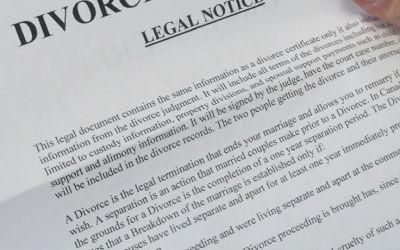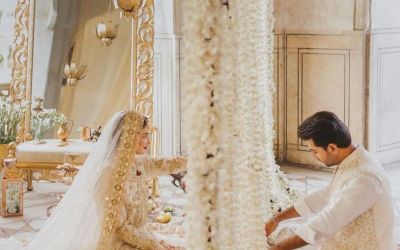Can a Muslim Marry a Non-Muslim? Everything You Need to Know About Interfaith Marriages
Table of Contents ▼
Marriage is a cherished and meaningful part of life, particularly for Muslims, who place spiritual value on it.
When love crosses religious boundaries, however, things can become complicated, particularly in the context of Sharia law. One common question is: can a Muslim marry a non-Muslim?
Let’s walk through this topic, supported by reliable Islamic and governmental sources.
Marriage and Sharia Law
In Islam, marriage is considered a sacred bond, built on love, mercy, and faith. Sharia law, which governs the lives of Muslims, lays down specific rules for marriage. One of the key requirements for a successful marriage is compatibility in religion. Islam places significant importance on religion in guiding family life, decision-making, and child-rearing. According to the UAE government portal, marriages under Sharia law must meet several conditions, one of which is that both partners should share similar religious beliefs. This leads to the question: can a Muslim marry a non-Muslim? The answer depends on whether the Muslim is a man or a woman, as Sharia law treats these situations differently.
Can a Muslim Man Marry a Non-Muslim Woman?
Yes, Islam allows a Muslim man to marry a non-Muslim woman, but there are clear guidelines. According to the Quran and Islamic scholars, a Muslim man can marry a woman from the “People of the Book,” meaning practicing Jews and Christians. If a Jewish or Christian woman is known for her chastity, modesty, and religious devotion, she can be married to a Muslim man.
However, the marriage is subject to conditions. The woman must genuinely practice her religion—atheists or women who do not follow any faith are excluded. She must also be chaste, leading a modest lifestyle. Additionally, the marriage must not conflict with the Muslim man’s religious practices or the Islamic upbringing of any children they may have. While many Muslim countries allow interfaith marriages, such as the UAE, societal pressures often encourage marriage within the faith due to concerns over religious observances, child education, and family dynamics.
Can a Muslim Woman Marry a Non-Muslim Man?
In Islam, the answer to whether a Muslim woman can marry a non-Muslim man is unequivocally “No.” While a Muslim man is allowed to marry a non-Muslim woman, this does not apply in the reverse scenario, even if the man is from the “People of the Book” (Jews or Christians). This teaching comes directly from the Quran and the interpretations of Islamic scholars.
The prohibition is based on the traditional family dynamics in Islam, where the husband typically holds the leadership role within the household. Islam emphasizes the importance of protecting a Muslim woman’s faith within her marriage. There is a concern that a non-Muslim husband may not support his wife’s religious beliefs, which could have an adverse effect on her and their children’s adherence to Islam. The ruling seeks to preserve the Muslim woman’s faith and ensure that children are raised in an environment that aligns with Islamic values.
Interfaith Marriage in Today’s World
As we live in a world that is more interconnected than ever, interfaith relationships are becoming a common part of daily life. With globalization, interactions between people from different religions and cultures are increasing, leading many countries to amend or reinterpret their laws to reflect these new realities. The question arises: Can a Muslim marry a non-Muslim?
In Muslim-majority countries, the legal approach to interfaith marriages varies. For example, in the UAE, non-Muslims can marry under civil law, but Muslim marriages are required to follow Sharia law. This allows for both civil and religious marriages, while still respecting the guidelines of Islam. However, in Saudi Arabia, Islamic law is applied uniformly across all marriages, including those involving non-Muslims. This shows that despite modern legal adaptations, the core principles of Sharia law regarding marriage remain largely unaltered.
Conversion as a Solution?
Sometimes, the solution to the barriers preventing a Muslim from marrying a non-Muslim partner is conversion. If the non-Muslim partner embraces Islam, the interfaith marriage issue can be resolved. However, conversion must be done with sincerity. It’s not enough to convert just for the sake of marriage. Islam places great value on authentic belief, and converting to Islam should come from a true connection with its teachings.
Scholars suggest that couples considering conversion should take their time to learn about Islam thoroughly and reflect on the decision. A genuine conversion is rooted in faith and understanding, which leads to a deeper spiritual connection and ensures that both partners are making the decision for the right reasons.
Ready to Start Your Journey Together?
Sharia law provides clear guidelines designed to protect faith, family, and future generations. These guidelines are intended to simplify life and ensure that religious practices are upheld. If you or someone you know is contemplating an interfaith marriage, it’s important to consult with knowledgeable scholars to understand both the religious and legal requirements.
At Easy Wedding, we specialize in making your Islamic marriage simple, beautiful, and stress-free, no matter where you are in your faith journey.
Whether you’re preparing for a traditional Nikah or navigating the challenges of an interfaith marriage, our expert team is here to help every step of the way.
Visit Easy Wedding today and take the first step toward your happily ever after!


